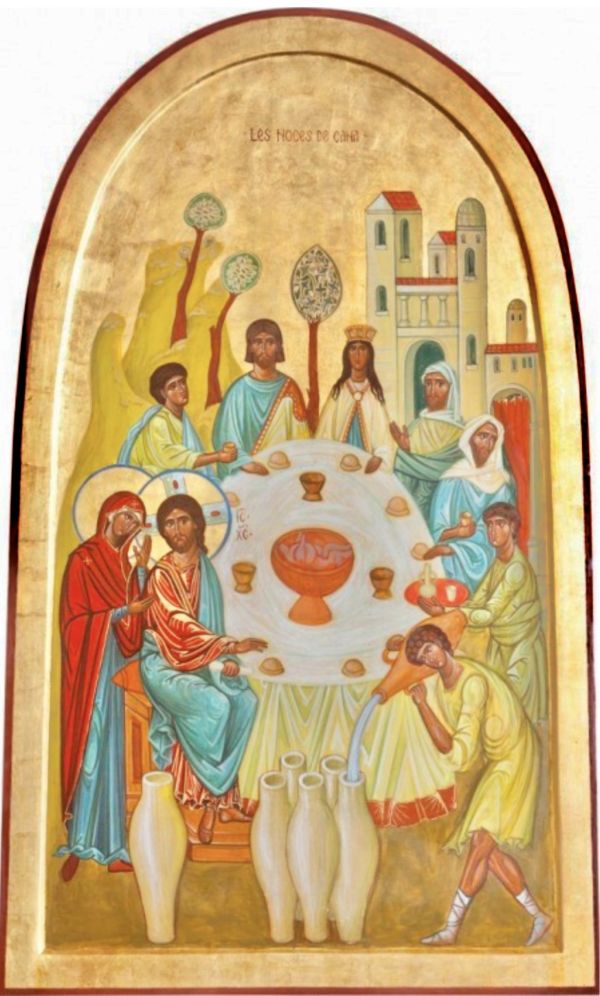(Wedding at Cana: Prototype of the Signs)
(Jn 2:1-11)
In the Bible, the most pregnant image expressing God's love for his people is the conjugal one.
The Lord is the Bridegroom who unceasingly goes to take back the beloved, even the betrayer, because He does not allow himself to be influenced by infidelity.
In Jn, the Lord does not "begin" from an absorbed, thoughtful and neutral rite.
He expresses himself in a Feast, where caresses must not be lacking: this is the «prototype of the signs» (Jn 2:11 Greek text).
The episode of Cana is the emblematic summary of all the prodigies in which the action of the Redeemer is manifested, also thanks to our choices.
As if to say: the work of Faith is tender, sympathetic and total; not exclusive or jealous. Thus it even becomes capable of inexplicable recoveries.
Ancient religion tended to convey a shrunken and normal, individualistic and distracted model of life.
But in the nuptial and festive one of the authentic believer, ‘perfection’ rhymes with making oneself available.
Only those who have the freedom to come down and pay attention to the guests at the banquet realise and are able to make them understand (even the seasoned ones: Jn 2:9) how a discoloured and insipid panorama is revived.
Even if they were newcomers, those who make themselves servants and make themselves present know where the taste of love comes from.
They understand how pale dissatisfaction and one-sided disinterest is transformed into wonder and a desire to be there.
In short, “believing in Jesus” is not baggage that is administered from time to time, but a growing Relationship - always fresh.
While the hegemons may stand in the way, in the affection of people the Lord celebrates the Wedding with-us and proclaims his Glad Tidings.
We are not under the cloak of a Judgment that conditions and plagues, to render us sterilised; devoid of fragrance.
Even to community leaders - when they are strict censors - He recommends to finally pay attention: the Father does not express himself in codes, but in the happiness of his sons, even beginners.
The best is not behind us and suitable only for grey, folded people, that is to say, à la page and without construct; survivors and veterans, or disembodied idealists. It is yet to come!
Having shaken off the heat of prejudice, we are enabled to look at situations old and new as Nourishment, and all people as unique works of the Creator, his masterpieces.
Faith brings an attitude of such Fullness, which allows one to face events in harmony and perfection.
When, on the other hand, forensic, selective frost or abstract, spineless thinking takes over, here is the (desolating) panorama of irremovable jars of cold stone - even empty of water.
Not only incapable of purifying or quenching thirst, but not even useful for washing away the most epidermal dirt, along with the sophistications.
Only invaded by cobwebs.
[2nd Sunday in O.T. January 19, 2025]












